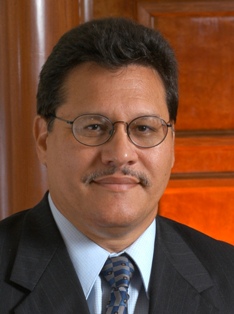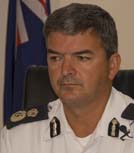Archive for August 31st, 2010

US disclosure law a “nightmare” say lawyers
 (FT.Com): Companies in the United States are facing a “logistical nightmare” from a new rule forcing them to disclose the ratio between their boss’ and their staff’s pay packets, lawyers have warned. The mandatory disclosure will provide ammunition for activists seeking to target perceived examples of excessive pay and perks. The law taps into public anger at the increasing disparity between the faltering incomes of middle America and the largely recession-proof multimillion-dollar remuneration of the typical corporate chief. Last year, S&P 500 chief executives, received median pay packages of $7.5m, according to executive compensation research firm Equilar. By comparison, official statistics show the average private sector employee was paid just over $40,000.
(FT.Com): Companies in the United States are facing a “logistical nightmare” from a new rule forcing them to disclose the ratio between their boss’ and their staff’s pay packets, lawyers have warned. The mandatory disclosure will provide ammunition for activists seeking to target perceived examples of excessive pay and perks. The law taps into public anger at the increasing disparity between the faltering incomes of middle America and the largely recession-proof multimillion-dollar remuneration of the typical corporate chief. Last year, S&P 500 chief executives, received median pay packages of $7.5m, according to executive compensation research firm Equilar. By comparison, official statistics show the average private sector employee was paid just over $40,000.

Ousted CIMA chair to deliver key note at old college
 (CNS): The man, who learned he would no longer be chairing government’s regulatory body through the press, will be making a rare public appearance when he delivers a keynote speech for his old college later this month. Business and community leader, Carlyle McLaughlin, who retired from public life after he was ousted from the chairmanship of CIMA by the UDP government, credits his bachelors degree in business from the International College of the Cayman Islands as his stepping stone to a successful financial career. The speech will be delivered at a banquet celebrating the college’s 40th anniversary on 24 September.
(CNS): The man, who learned he would no longer be chairing government’s regulatory body through the press, will be making a rare public appearance when he delivers a keynote speech for his old college later this month. Business and community leader, Carlyle McLaughlin, who retired from public life after he was ousted from the chairmanship of CIMA by the UDP government, credits his bachelors degree in business from the International College of the Cayman Islands as his stepping stone to a successful financial career. The speech will be delivered at a banquet celebrating the college’s 40th anniversary on 24 September.
“No matter what anyone says, it can no longer be said that there is an expectation that CIMA should act as much as possible as an independent body from central Government and that its appointments should not be seen as political,” McLaughlin said

Donation helps government kids’ homes unify families
 (CNS): A donation of $45,000 from the local hedge fund industry has contributed to some success for the Children and Youth Services (CAYS) Foundation’s family reunification programme. Officials say reuniting children in the care system with families reduces the numbers in protective custody. The process of reunification is an in depth one and the grant from Hedge Funds Care (HFC) was used to employ a full time expert last year who is now seeing the results of her work. Janet Ham who is responsible for bringing families back together says the programme has many challenges but it has improved the number of successful returns.
(CNS): A donation of $45,000 from the local hedge fund industry has contributed to some success for the Children and Youth Services (CAYS) Foundation’s family reunification programme. Officials say reuniting children in the care system with families reduces the numbers in protective custody. The process of reunification is an in depth one and the grant from Hedge Funds Care (HFC) was used to employ a full time expert last year who is now seeing the results of her work. Janet Ham who is responsible for bringing families back together says the programme has many challenges but it has improved the number of successful returns.

Family homeless after Bodden Town blaze
 (CNS): CID and fire experts are now investigating the cause of a house fire last night (Monday 30 August) which destroyed a home in Midland Acres Bodden Town and could have been deliberate. No one was hurt in the blaze as the family of four which included two small children of two and four years old were out at the time. The 911 emergency centre received the call at around 9pm and fire officers and police officers from Bodden Town Station responded to the address at 95 Periwinkle Arriving at the scene fire officers said the one bedroom concrete structure was engulfed in flames. Although the fire was quickly extinguished the property was severely, damaged. (Photo Dennie Warren Jr)
(CNS): CID and fire experts are now investigating the cause of a house fire last night (Monday 30 August) which destroyed a home in Midland Acres Bodden Town and could have been deliberate. No one was hurt in the blaze as the family of four which included two small children of two and four years old were out at the time. The 911 emergency centre received the call at around 9pm and fire officers and police officers from Bodden Town Station responded to the address at 95 Periwinkle Arriving at the scene fire officers said the one bedroom concrete structure was engulfed in flames. Although the fire was quickly extinguished the property was severely, damaged. (Photo Dennie Warren Jr)

Jazz Fest cancelled as DoT strapped for cash
(CNS): Government is cancelling this year’s Jazz Fest as it says it does not have enough money to host the musical event and there has not been enough interest from the private sector to make up the shortfall. In a statement released on Monday afternoon backbench government MLA Cline Glidden, said the Department of tourism budget was cut by $4million this year which had led to the lay off of twelve members of staff in the US and therefore could not find the $1.4milllion it costs to host the festival. Government had set aside CI$250,000 for this year and was looking for private sector participation to produce the event. However Glidden said that less than of third of the money needed had been committed.

CIG faces costly legal fight
 (CNS): The courtroom battle which government now faces with the former schools contractor, Tom Jones International, is set to be an expensive fight. Not only did government lose its bid to get TJI’s claim against it thrown out, the judge has also ordered that government foot the bill for the contractor’s attorneys in the first round of what looks likely to become a very costly exercise for the Education Ministry. According to the judgment handed down by Justice Alex Henderson last week, TJI was “wholly successful” at this stage and was entitled to costs. Henderson also said that government’s counterclaim against TJI was already vulnerable to strike out because of the “woeful lack of particularity” presented to the court in this first round.
(CNS): The courtroom battle which government now faces with the former schools contractor, Tom Jones International, is set to be an expensive fight. Not only did government lose its bid to get TJI’s claim against it thrown out, the judge has also ordered that government foot the bill for the contractor’s attorneys in the first round of what looks likely to become a very costly exercise for the Education Ministry. According to the judgment handed down by Justice Alex Henderson last week, TJI was “wholly successful” at this stage and was entitled to costs. Henderson also said that government’s counterclaim against TJI was already vulnerable to strike out because of the “woeful lack of particularity” presented to the court in this first round.
Fiona forms as Earl reaches category four
(CNS): Tropical Storm Fiona formed this evening some 890 miles east of the Leeward Islands. Maximum sustained winds are 40 mph and it is moving west at 24 mph. A turn toward the west-northwest is expected on Tuesday followed by a turn toward the northwest and a decrease in forward speed on Wednesday. The National Hurricane Centre said on this track Fiona could be near or just to the northeast of the northern Leeward Islands by early Wednesday. Some strengthening is forecast during the next 48 hours and tropical storm force winds currently extend outward up to 140 miles to the northeast of the centre. Meanwhile, at 9pm this evening Earl was located about 100 miles of San Juan, Puerto Rico.

Cops criticize commissioner
 (CNS): The Police Association has publicly criticized Commissioner David Baines regarding comments he made about basic literacy training for police officers. The association suggested that the rank and file could have been further demoralised by what Baines said at a public meeting in West Bay, which was reported on CNS. Inspector Gordon, the group’s chairman, stated that this could have put further strain on an already strained relationship between management and the ranks. The group, which represents the interests of police officers, has complained about problems with training and believes it is mismanagement of cash that has caused the problems.(Photo Dennie WarrenJr)
(CNS): The Police Association has publicly criticized Commissioner David Baines regarding comments he made about basic literacy training for police officers. The association suggested that the rank and file could have been further demoralised by what Baines said at a public meeting in West Bay, which was reported on CNS. Inspector Gordon, the group’s chairman, stated that this could have put further strain on an already strained relationship between management and the ranks. The group, which represents the interests of police officers, has complained about problems with training and believes it is mismanagement of cash that has caused the problems.(Photo Dennie WarrenJr)